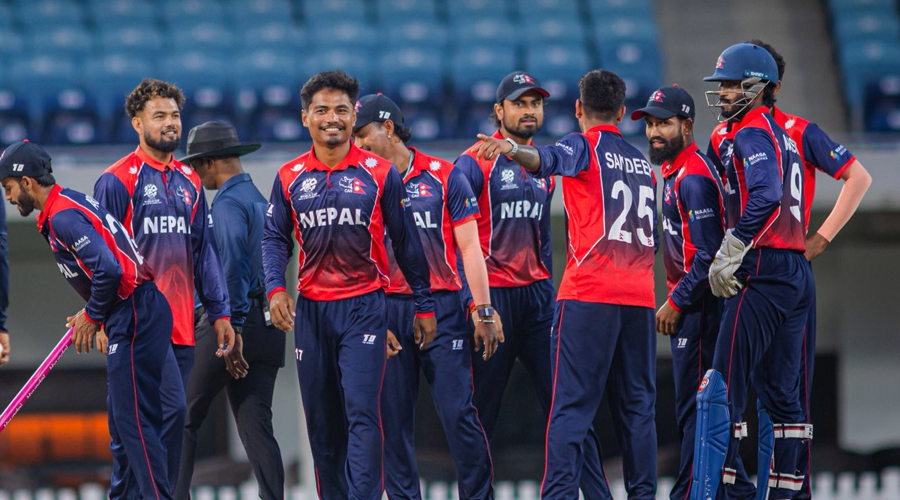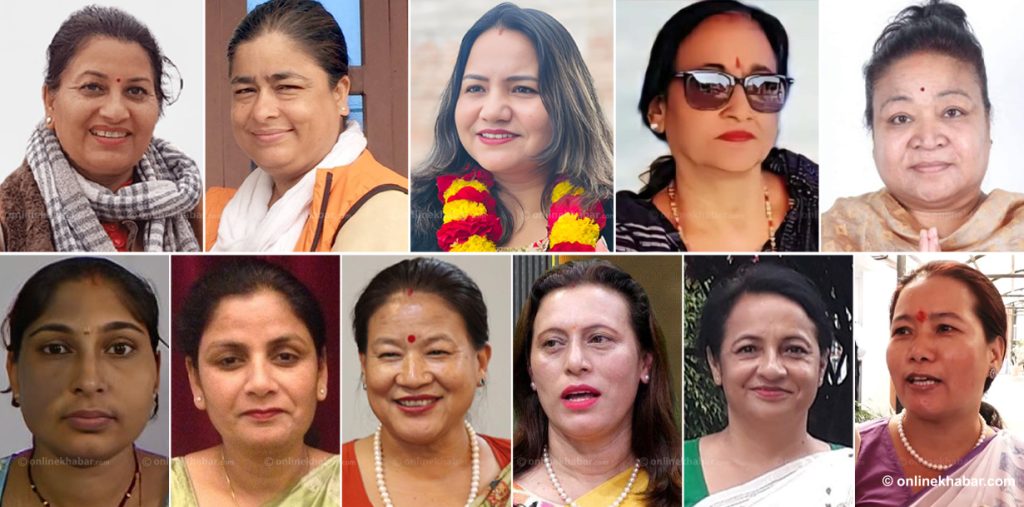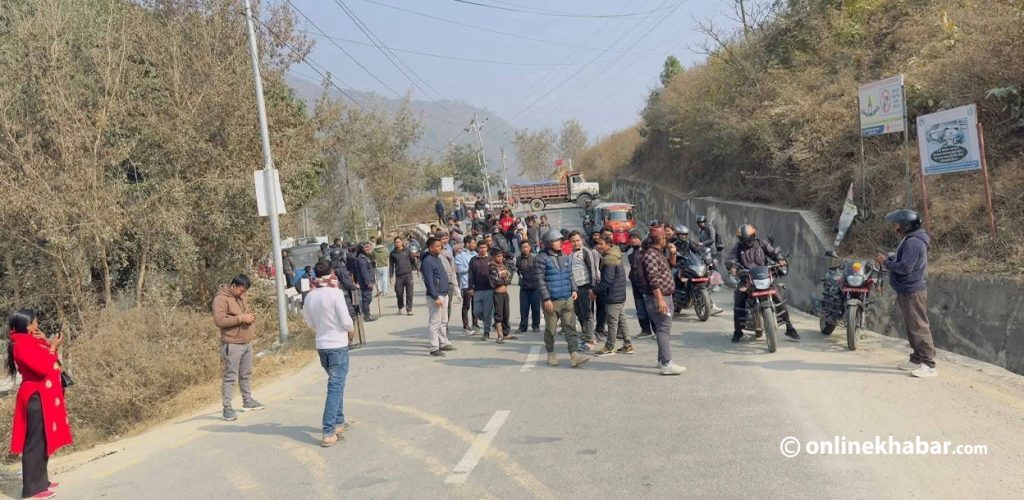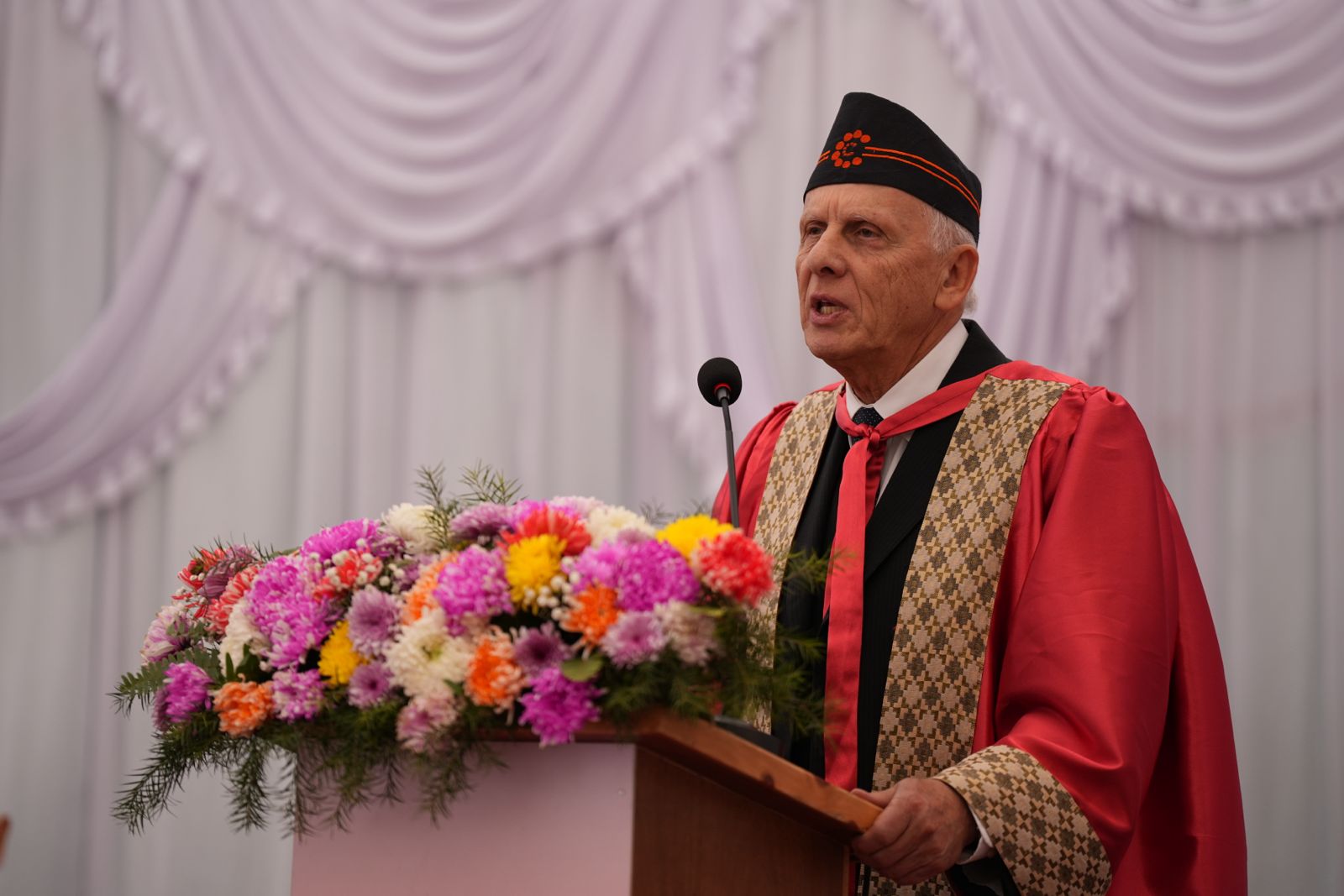
Kathmandu Mayor Balen Shah, apparently, has been frustrated with the lack of help from the central government ever since he was elected by the people of Nepal’s capital in May last year.
As soon as he took over as mayor of the Kathmandu metropolitan city, he had to deal with issues regarding Kathmandu’s waste disposal. After locals of Bancharedanda obstructed garbage trucks from entering the landfill, Shah argued that major political parties were playing politics with waste.
It is nearly been a year since Balen Shah was elected as mayor and even now, the waste issue has not been solved. The locals of Bancharedanda, time and again, obstruct vehicles from entering the area stating their demands have not been met.
Now, Shah, wanting to prove a point, has said he will not pick up waste from Singhadarbar, the seat of the federal government, and is trying to use this as a bargaining ploy to ensure the demands he put in front of the government are met.
So why are both sides adamant on their stances, thereby blocking a middle-path solution? And, what can Kathmanduites expect next?
Shah’s claims

On April 8, Balen Shah presented 14 examples of non-cooperation from the federal government and stated that he would not pick up waste from Singhadarbar, the central administrative complex of the government. Following that, many people from the federal government asked Shah not to play politics with waste.
Shah, however, is not budging. The Minister for Urban Development Sita Gurung requested Shah to come for talks. But Shah has taken a firm stance and said he would only hold talks with either Prime Minister Pushpa Kamal Dahal or Home Minister Narayan Kaji Shrestha.
Balen Shah is particularly frustrated with how Singhadarbar has not supported the plan of the metropolis to remove squatters from the banks of the Bagmati river. Shah has repeatedly asked for support but received none.
That is not all. He wants help from the federal government with traffic light management, pedestrian pavements encroached upon by foreign missions, digital TV in government schools, transfer of teachers and timely salaries, government hospital cleanliness, health insurance for people living near dumping sites and the destruction of the top floor of the Ministry of Health which has been built illegally. He said the government has not given him enough budget for the national ambulance either.
The metropolis has asked for other projects to be moved ahead including the blueprint development of Tribhuvan International Airport, the Tinkune area compensation issue, the building of Sankhadhar Sakhwa Park in the airport and the connection of Yangri and Larke rivers into the Melamchi water project for a hassle-free water supply. Shah also said Singhadarbar needs to allow the metropolis to take corporate rental tax too.

Shah is also demanding that the federal government should help manage river corridors, assist in cleaning rivers, establish sewage treatment plants, build underpasses, build leachate treatment plants in Bancharedanda, and manage alternative roads, soil capping and gas pipes in Sisdol and Bancharedanda. Shah alleges that the federal government is now helping the metropolis make laws and providing land for waste management in Kathmandu.
He demanded that the expansion of the ring road, formation of the Valley Transport Authority, integrated infrastructure development operation between the internet service provider companies and Nepal Telecom for wire-pole management, and street lighting management should also be supported.
Mayor Shah is demanding that the metropolis should get help from Singhadarbar in the management of Melamchi’s water and pipes as well as Kathmandu Valley Water Supply Limited.
He complains that cooperative laws and regulations should be tightened, public land should be protected, staff transfer should be regular and transparent, fertilisers should be purchased and vegetables brought to the valley should be tested, etc. He alleges that despite repeated discussions with the concerned ministers, no progress has been made.
“When they don’t address issues put forward by the local government that is only 500 metres away (from Singhadarbar), how can we expect the government to address issues put forward by municipalities in remote areas,” Shah wrote on Facebook.
He says that a federal government that does not listen, understand and prioritise concerns raised by the local governments and people’s representatives, is not working towards strengthening federalism in the country.
Shah says that he is not picking up waste from Singhaduabar to force the federal government to listen to and create an environment to ensure people stop coming to Kathmandu for treatment, and education and to ask for justice in the federal country.
“Why doesn’t the government work to make other cities and villages better,” he questions. “They need to be put under pressure.”
Singhadarbar’s response

The federal government has formally opposed the mayor’s decision not to pick up waste from Singhadarbar. After the cabinet meeting on April 12, the government’s spokesperson, Minister of Communication and Information Technology Rekha Sharma reminded that there is a policy arrangement to collect the garbage of the valley at the local level.
Besides calls for the talks by Urban Development Minister Gurung, Prime Minister Dahal and Home Minister Shrestha have not made any response yet.
Instead, officials are expressing frustration. An official of the Ministry of Urban Development says, “The old style of turning waste into a weapon to meet their demands has continued.”
Former government secretary Kishor Thapa recalls that previous mayors have also tried using his tactic. Both PL Singh and Keshav Sthapit refused to pick up waste from Singhadarbar when they refused to work in the metropolis’ favour.
Thapa says Shah was forced to do this after getting frustrated with the federal government. He believes the government has not provided the metropolis with technical support, budget, human resource and equipment as per the law.
“As the capital city, the problems of Kathmandu are different, hence the responsibility of the metropolis is also different compared to other cities,” says Thapa. “If there is non-cooperation or repression, the metropolis will show its weapons.”
So, what’s next?

The constitution has given the responsibility of waste management to the local level. For that, the federal government at Singhadarbar has to support the local government in building infrastructure. The federal government is in the process of handing over the landfill site in Bancharedanda and the road leading to it to the metropolis.
Meanwhile, there is no unanimity within the metropolis on the mayor’s decision to stop the collection, transportation and disposal of waste belonging to essential services. Deputy Mayor Sunita Dangol says that the city government has not made an official decision not to pick up the waste from Singhadarbar. She says this issue has not been talked about in the municipal meeting.
“Mayor may have used his executive authority to stop the waste of Singhadarbar,” she says. “I think that the solution to the problem should be found through intergovernmental coordination.”
Navin Manandhar, the spokesperson for the city government, also says there was no discussion at the municipal meeting or with the ward chairs about not picking up the waste from Singhadarbar.
“There is no question that the federal and provincial governments should support the work of the metropolis,” he says.
But Mayor Shah is not in favour of listening to anyone other than having a one-on-one talk with Singhadarbar. Sunil Lamsal, the focal person of his secretariat looking after waste management, says that the waste will not be removed until Shah holds talks with key personnel at Singhadarbar.
“The city government was forced to not pick up the garbage because of non-cooperation. We will not pick it up until we hold talks with the prime minister,” he says.
The federal government, on the other hand, is trying to put all the blame on Mayor Shah and the local government.
“Garbage is something that smells, spoils the environment, and spreads diseases! Isn’t it imprudent to say that the Ministry of Home Affairs did not send the police to remove the slums so that the garbage is not picked up?” the official at the Urban Development Ministry questions.
The official said Shah is playing politics like any other person by doing this in the capital of the country. He says that Shah’s latest insistence will send a message that any demand could be met by putting pressure like this.
“Such a trend will cause more suffering to the people than to the government tomorrow,” says the official, who does not want to be named. “The rooms of the air-conditioned offices will not smell the stench from the garbage. It is the common people who will suffer.”
This story was translated from the original Nepali version and edited for clarity and length.
























